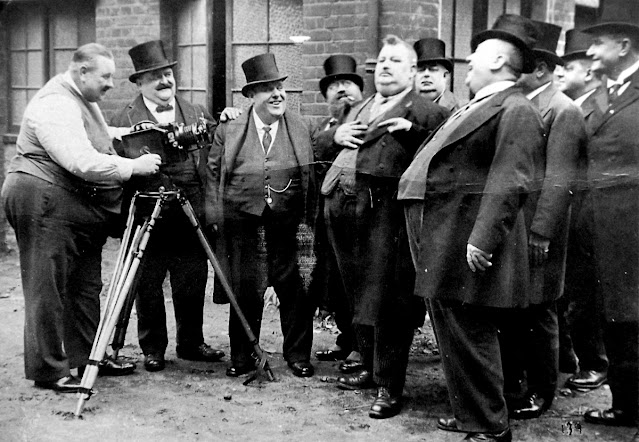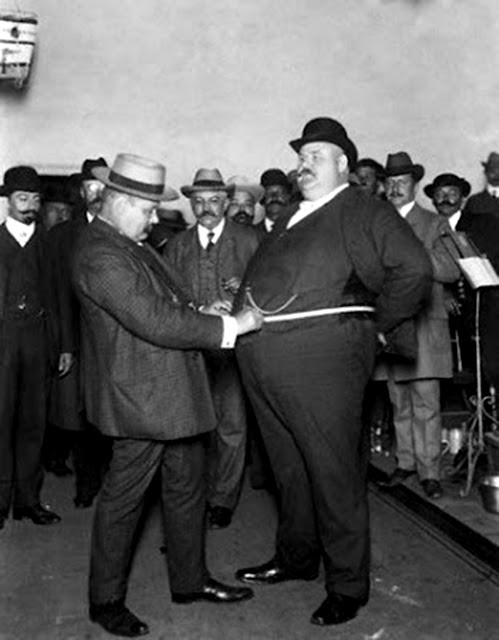Fat men’s clubs began in the U.S as early as sometime in the 1860s. Many major cities, like New York and Boston, organized their own charters under umbrella groups like the Northeast and Northwest. Some states, like Utah, had their own autonomous groups. These organizations eventually spread overseas to European countries, too, like Yugoslavia and England. The French Fat Men’s Club was called Les Cent Kilos de Paris. A baseball team, the Fat Men’s Amusement Company, comprised completely of Fat Men’s Club members. At the height of popularity the Northeast chapter is purported to have had over 10,000 members.
In 1903, in a cheery local tavern tucked away in Wells River, Vermont, one of America’s most successful fat men’s clubs was launched. “We’re fat and we’re making the most of it!” was their mantra. “I’ve got to be good-natured; I can’t fight and I can’t run,” was their motto.
The primary requirement for joining one of these clubs was a minimum weight of 200 pounds (91 kg). Other requirements, such as the $1 membership fee, seem trivial. women, however, were not allowed. Clubs had their own secret handshakes and passwords and hosted regular functions and outings. Though much of the clubs’ activities were centered around making the membership feel accepted and accepting of their own stature, fat men’s clubs were really just another way to network. Grand balls, baseball games, international trips, lavish feasts, ice skating, and a myriad of other activities facilitated business and personal relationships with similar men.
Eventually not even having William H. Taft as a member could save these clubs from disappearing. As membership dwindled, some clubs went as far as to forgo the minimum weight requirement. By the 1940s, the fat men’s clubs were no more.














0 comments:
Post a Comment